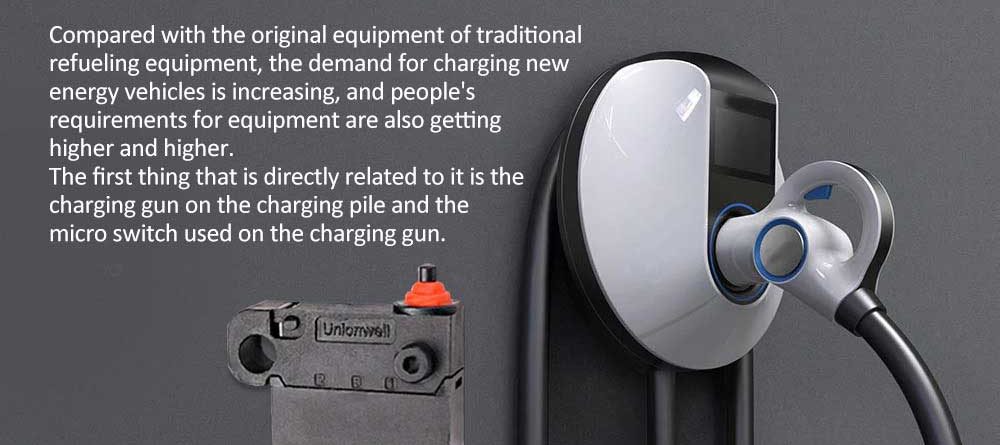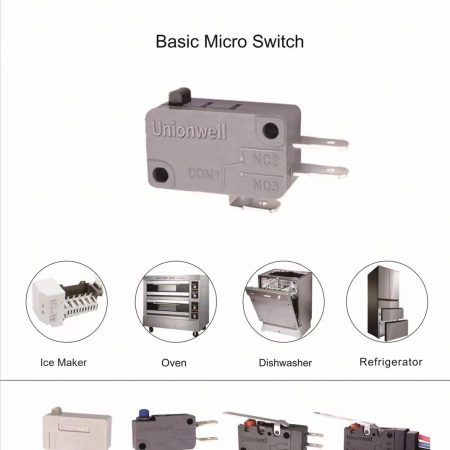Understanding the Difference Between SPST, SPDT and DPDT Switches
In the realm of electrical engineering and electronics, switches are the unsung heroes, quietly facilitating the flow of electricity and enabling the functionality of countless devices we rely on daily. Among the plethora of switches available, three primary types stand out: Single Pole Single Throw (SPST), Single Pole Double Throw (SPDT), and Double Pole Double Throw (DPDT). In this article, we delve into difference between SPST, SPDT and DPDT switches, shedding light on their unique functionalities, applications, and the role Unionwell plays in providing quality switch solutions.
Understanding the Difference Between SPST, SPDT and DPDT Switches
Before delving into the specifics of SPST, SPDT, and DPDT switches, it’s essential to grasp the fundamental concept of a switch. At its core, a switch is a device that interrupts or diverts the flow of electrical current in a circuit. By toggling a switch, you can open or close a circuit, thereby controlling the flow of electricity to various components within a system.
1. SPST (Single Pole Single Throw) Switch:
The SPST switch is the simplest form of a switch, featuring a single pole (connection terminal) and a single throw (position). In its default state, the SPST switch either allows or interrupts the flow of current through a single conductor. When the switch is toggled, it either connects or disconnects the circuit.
Applications of SPST Switches:
– On/Off switches in electronic devices
– Toggling power to a light fixture
– Controlling small DC motors
– Basic circuitry in household appliances
Unionwell’s Contribution:
Unionwell, a renowned manufacturer of precision switches, offers a diverse range of SPST switches tailored to various applications. With a commitment to quality and reliability, Unionwell’s SPST switches are trusted by engineers and designers worldwide.
2. SPDT (Single Pole Double Throw) Switch:
The SPDT switch expands upon the functionality of the SPST switch by introducing an additional throw. It features a single pole and two throws, allowing it to control the flow of current between two separate circuits. In its default state, the SPDT switch connects the common terminal to one of the two other terminals. When toggled, it redirects the current flow to the alternate terminal.
Applications of SPDT Switches:
– Changeover switches in electronic devices
– Reversing the direction of a DC motor
– Selecting between two input sources
– Alternating between heating and cooling modes in HVAC systems
Unionwell’s Contribution:
Unionwell’s range of SPDT switches embodies the company’s dedication to innovation and performance. Designed to meet the demands of diverse industries, Unionwell’s SPDT switches boast superior durability and precision, ensuring seamless operation in critical applications.

3. DPDT (Double Pole Double Throw) Switch:
The DPDT switch represents the pinnacle of versatility among the three switch types, featuring two poles and two throws per pole. With a total of six terminals, the DPDT switch enables simultaneous control over two independent circuits. When toggled, it can establish different connections within each pole, offering a myriad of configuration possibilities.
Applications of DPDT Switches:
– Reversing the direction of a AC motor
– Switching between two power sources
– Implementing complex circuitry in robotics
– Control panels for industrial machinery
Unionwell’s Contribution:
Unionwell’s commitment to excellence extends to its range of DPDT switches, which are engineered to meet the exacting standards of modern industries. Whether it’s automotive applications, home automation systems, or industrial machinery, Unionwell’s DPDT switches deliver unmatched performance and reliability.
Conclusion:
In conclusion, understanding the difference between SPST, SPDT and DPDT switches is crucial for engineers, technicians, and enthusiasts alike. While SPST switches offer simplicity and reliability for basic circuitry, SPDT and DPDT switches provide enhanced functionality for more complex applications. Unionwell, with its dedication to quality and innovation, stands at the forefront of switch manufacturing, offering a diverse range of solutions to meet the evolving needs of various industries. Whether it’s SPST, SPDT, or DPDT switches, Unionwell delivers excellence with every product, empowering customers to build and innovate with confidence.






